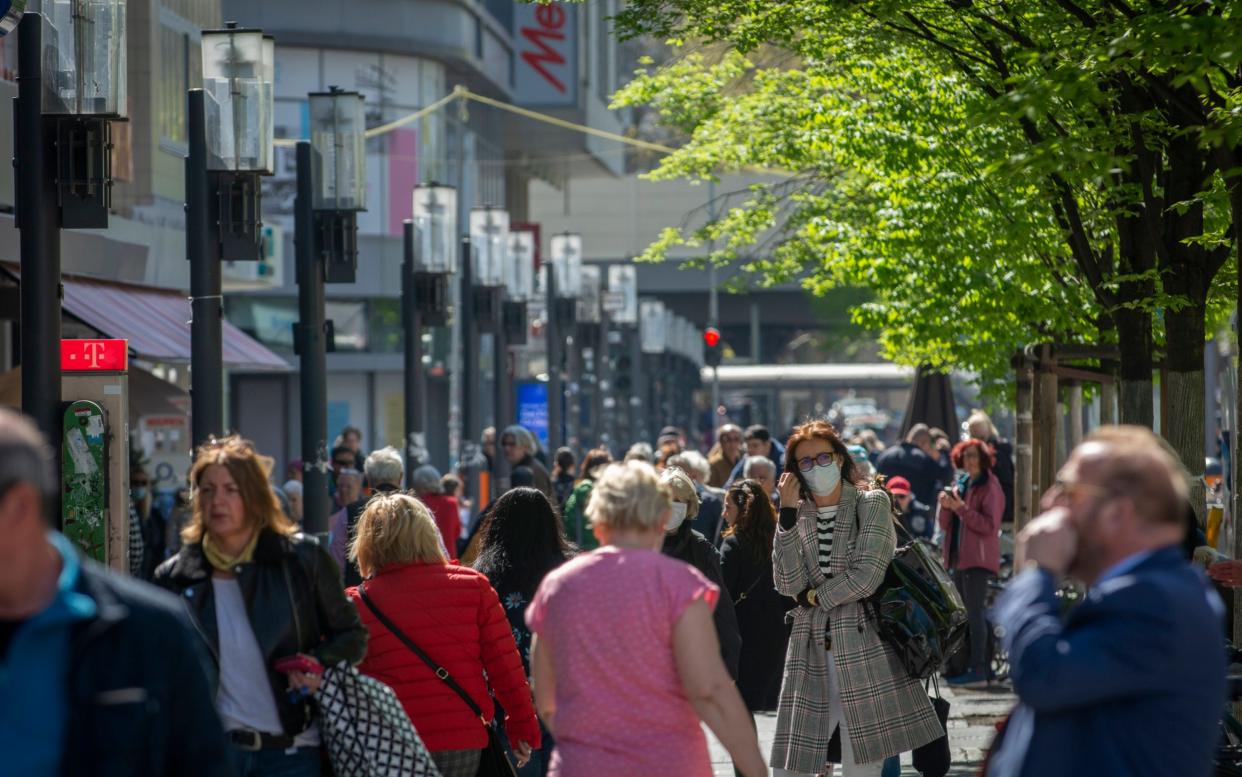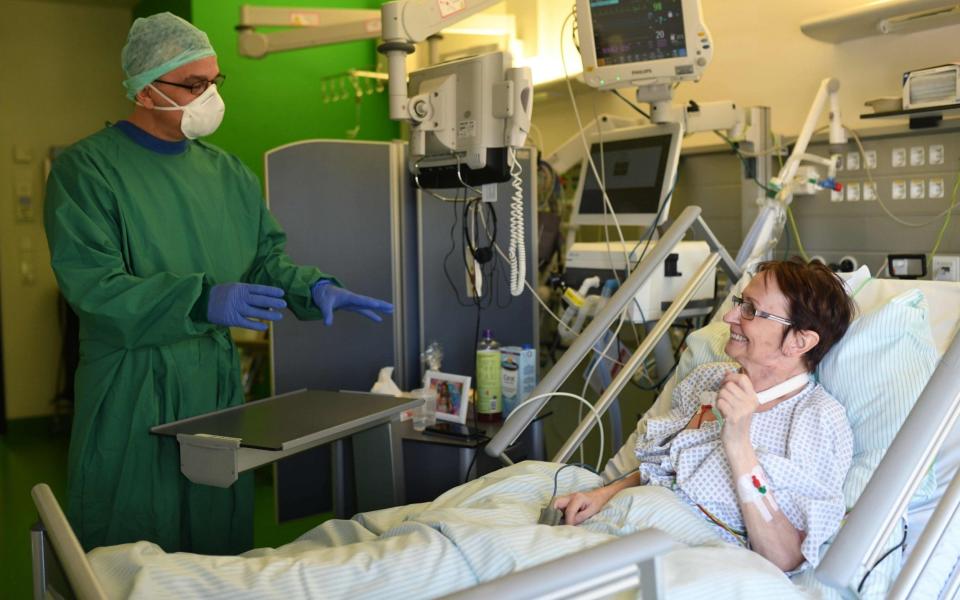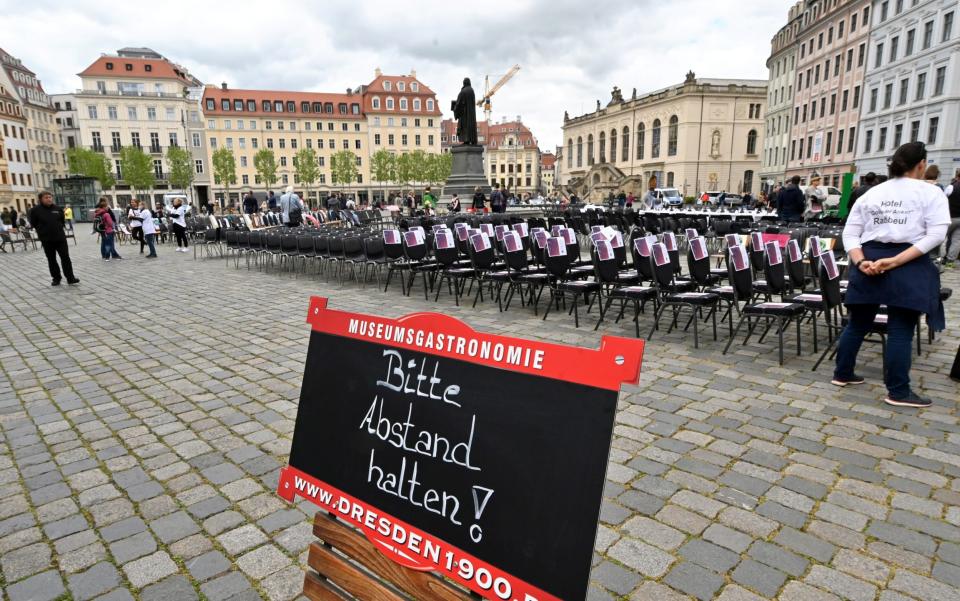Ten times more people in Germany may be immune to coronavirus than predicted

Ten times more people than previously thought may have already acquired immunity to coronavirus, according to a groundbreaking study in Germany.
On Monday, scientists from the University of Bonn said their findings showed that 1.8 million people across Germany had already been infected with the virus.
That is more than 10 times as many as have tested positive so far, and would mean more than 1.6 million may have been infected and recovered without knowing it.
The findings are based on the first comprehensive study of the effects of the virus on a single community in Gangelt, the town at the epicentre of Germany’s first major outbreak.
As reported by The Telegraph, the study's initial findings last month suggested the fatality rate in Gangelt was much lower than previously thought at just 0.37 per cent.
The study's authors now believe this is the general fatality rate for the virus and that it can be used to extrapolate the total number of undetected infections from the death toll.
"Because our research allows us to determine exactly how many individuals are infected, we can also determine the percentage of deaths among all those infected with great accuracy," Professor Hendrik Streeck, the study's leader, said as he announced the final findings on Monday.
"The infection fatality rate is a property of the virus. It can to a degree be applied to all of Germany – corrected for demography, of course."
It is still not clear whether those who recover from the virus have any form of immunity, or how long it may last, Prof Streeck told the Frankfurter Allgemeine Zeitung newspaper.
"But we can draw conclusions from the laboratory," he added. "Trained immune responses can block the virus, and we know in the case of other coronaviruses that you can have at least partial immunity."

So far 165,745 people have tested positive for the virus in Germany and 6,866 have died, according to Johns Hopkins University. That suggests a fatality rate of 4.1 per cent, but most scientists believe there are many more undetected infections.
The majority of those who are infected show only mild symptoms, and a fifth show no symptoms at all, the Gangelt study found.
"The fact every fifth infection apparently has no noticeable symptoms suggests it is not possible to identify infectious people this way," said Professor Martin Exner, another of the study's authors. "Every apparently healthy person we encounter could be unwittingly carrying the virus. We have to keep this in mind and act accordingly."
The Gangelt study has proved controversial in Germany. Rival scientists have questioned its methodology and were quick to cast doubt on Monday's findings.
Professor Gerard Krause, of the Helmholtz Centre for Infection Research, pointed to the fact only seven people are known to have died of the virus in Gangelt. "That means one death more or less would make a really significant difference to the study," he said.

The findings come as Germany faces a "week of truth", with the first reliable data on lifting its lockdown expected within days.
Despite widely reported claims of a second wave in Germany – repeated by Dominic Raab at a Downing Street press conference – there is no data on the effects of easing restrictions yet.
Shops were allowed to reopen in Germany two weeks ago, but new infections take time to develop and German government scientists assume a lag of 10-14 days before they show up in tests.
With a delay in reporting after a holiday weekend, the first reliable figures are expected from Tuesday ahead of talks between Angela Merkel and regional leaders to decide future lockdown measures on Wednesday.
Mrs Merkel is under growing pressure from the business community to speed up the reopening of the economy, and several regional governments are threatening to go it alone if there is no national consensus on easing restrictions further.
North Rhine-Westphalia, the most populous of Germany’s 16 states, says it will reopen nurseries and kindergartens unilaterally if other regions do not agree.
Lower Saxony is pushing for restaurants, pubs and beer gardens to be allowed to reopen from next week, and Saxony-Anhalt has already broken ranks, announcing that it will allow gatherings of up to five people in public and an end to the ban on visiting relatives in retirement and care homes.
"Our companies want and need to know when social and economic life will start again," Dieter Kempf, the president of the German Federation of Industry (BDI), said. "Every week of lockdown is costing the German economy a mid double-digit figure in the billions."
Even after the reopening of shops, the lockdown is costing every German €60 a day, Professor Jens Sudekum, a leading economist, claimed.
"Lift the lockdown before it is too late!" the German Association of Small and Medium Enterprises said in an open letter to Mrs Merkel at the weekend.
The Munich-based Ifo Institute warned on Monday that the German car industry faces the bleakest prospects in its history.

